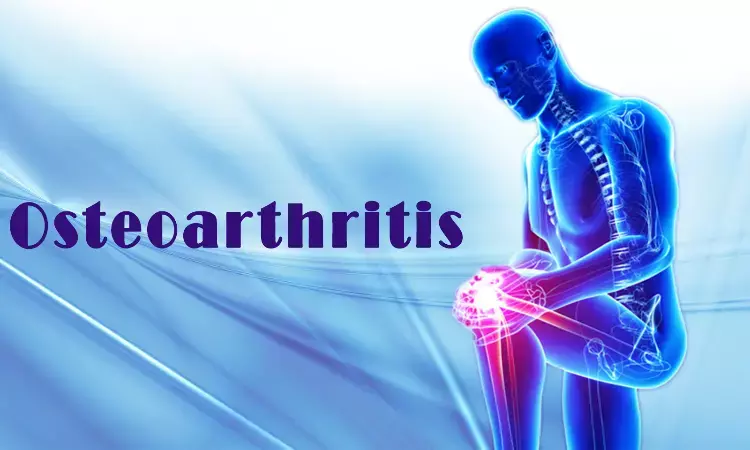- Home
- Medical news & Guidelines
- Anesthesiology
- Cardiology and CTVS
- Critical Care
- Dentistry
- Dermatology
- Diabetes and Endocrinology
- ENT
- Gastroenterology
- Medicine
- Nephrology
- Neurology
- Obstretics-Gynaecology
- Oncology
- Ophthalmology
- Orthopaedics
- Pediatrics-Neonatology
- Psychiatry
- Pulmonology
- Radiology
- Surgery
- Urology
- Laboratory Medicine
- Diet
- Nursing
- Paramedical
- Physiotherapy
- Health news
- Fact Check
- Bone Health Fact Check
- Brain Health Fact Check
- Cancer Related Fact Check
- Child Care Fact Check
- Dental and oral health fact check
- Diabetes and metabolic health fact check
- Diet and Nutrition Fact Check
- Eye and ENT Care Fact Check
- Fitness fact check
- Gut health fact check
- Heart health fact check
- Kidney health fact check
- Medical education fact check
- Men's health fact check
- Respiratory fact check
- Skin and hair care fact check
- Vaccine and Immunization fact check
- Women's health fact check
- AYUSH
- State News
- Andaman and Nicobar Islands
- Andhra Pradesh
- Arunachal Pradesh
- Assam
- Bihar
- Chandigarh
- Chattisgarh
- Dadra and Nagar Haveli
- Daman and Diu
- Delhi
- Goa
- Gujarat
- Haryana
- Himachal Pradesh
- Jammu & Kashmir
- Jharkhand
- Karnataka
- Kerala
- Ladakh
- Lakshadweep
- Madhya Pradesh
- Maharashtra
- Manipur
- Meghalaya
- Mizoram
- Nagaland
- Odisha
- Puducherry
- Punjab
- Rajasthan
- Sikkim
- Tamil Nadu
- Telangana
- Tripura
- Uttar Pradesh
- Uttrakhand
- West Bengal
- Medical Education
- Industry
Rapamycin may exacerbate age-related arthritis despite life-extending benefits

Rockville, Md. - New research to be presented this week virtually at the American Physiological Society's (APS) annual meeting at Experimental Biology 2021 explores the positive and negative effects of lifespan-extending drugs on mitochondrial function and age-related osteoarthritis (OA).
Decreased function of mitochondria--the energy centers of the cells--is a hallmark characteristic of aging. Maintaining mitochondrial function during the aging process while delaying age-related diseases, such as OA, could be a key to extending lifespan. Previous research has found that metformin, primarily used to treat type 2 diabetes, and rapamycin, a drug used to prevent organ transplant rejection, can extend lifespan and maintain physiological function in many animal models.
In a new study, researchers from the University of Wisconsin-Madison explored the effects of rapamycin, metformin or a regimen of both medications on a guinea pig model of OA. These drugs were chosen because they have been shown to expand lifespan and healthspan through positive change in the mitochondria. The research team found that the animals treated with rapamycin and the two-drug combination had lower mitochondrial content in their muscles and the function of the mitochondria was impaired. In addition to changes in mitochondrial function, rapamycin treatment also led to a rise in blood glucose levels and worsened OA scores, a measure of disease severity.
These results suggest "there may be an indirect connection between impaired skeletal muscle mitochondrial function to exacerbated OA after rapamycin treatment," said Christian Elliehausen, first author of the study. More research is needed to examine if it is possible to "harness the positive effects of rapamycin while minimizing the negative effects," Elliehausen explained.
Hina Zahid Joined Medical Dialogue in 2017 with a passion to work as a Reporter. She coordinates with various national and international journals and association and covers all the stories related to Medical guidelines, Medical Journals, rare medical surgeries as well as all the updates in the medical field. Email: editorial@medicaldialogues.in. Contact no. 011-43720751
Dr Kamal Kant Kohli-MBBS, DTCD- a chest specialist with more than 30 years of practice and a flair for writing clinical articles, Dr Kamal Kant Kohli joined Medical Dialogues as a Chief Editor of Medical News. Besides writing articles, as an editor, he proofreads and verifies all the medical content published on Medical Dialogues including those coming from journals, studies,medical conferences,guidelines etc. Email: drkohli@medicaldialogues.in. Contact no. 011-43720751


